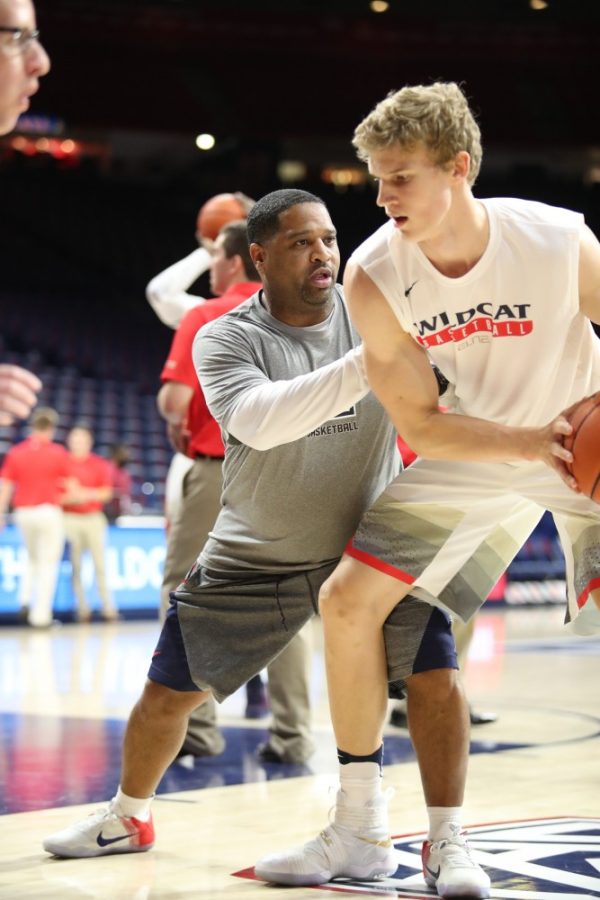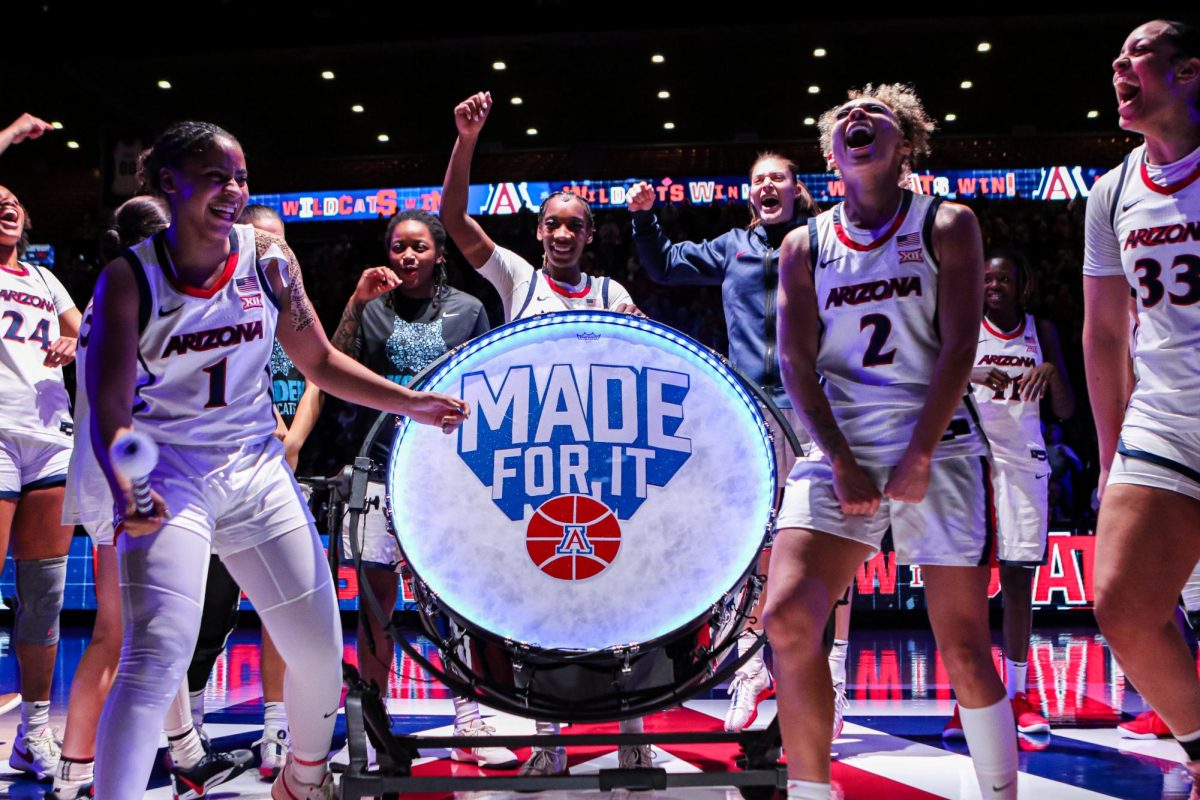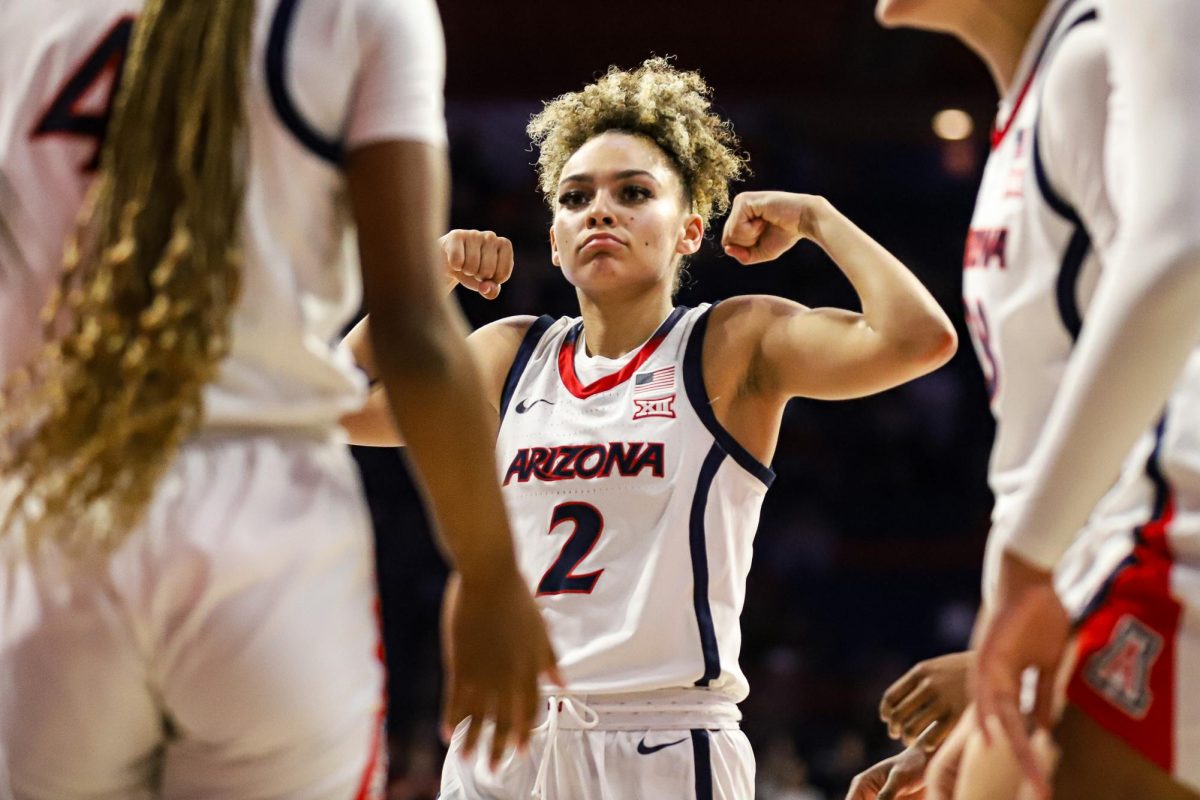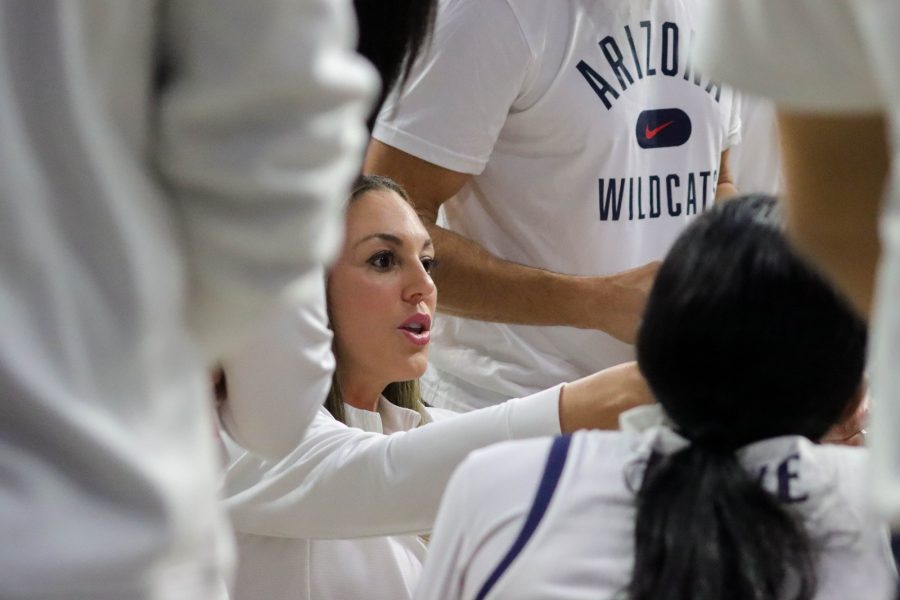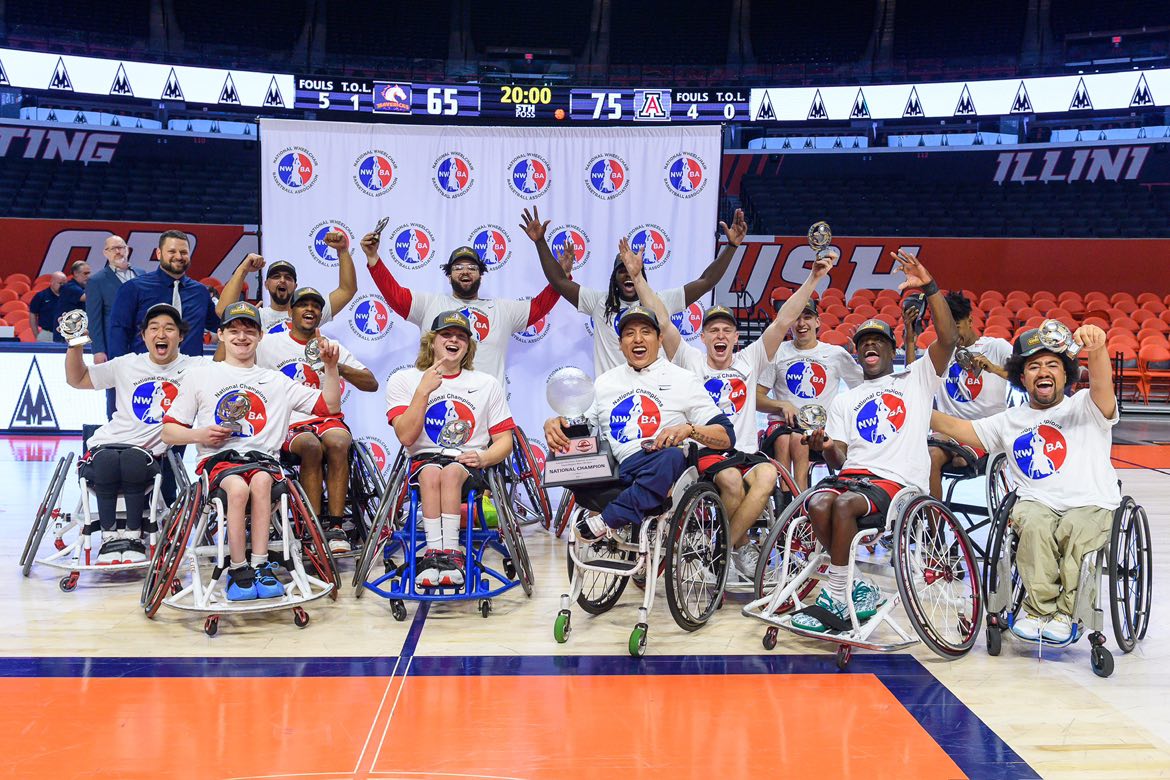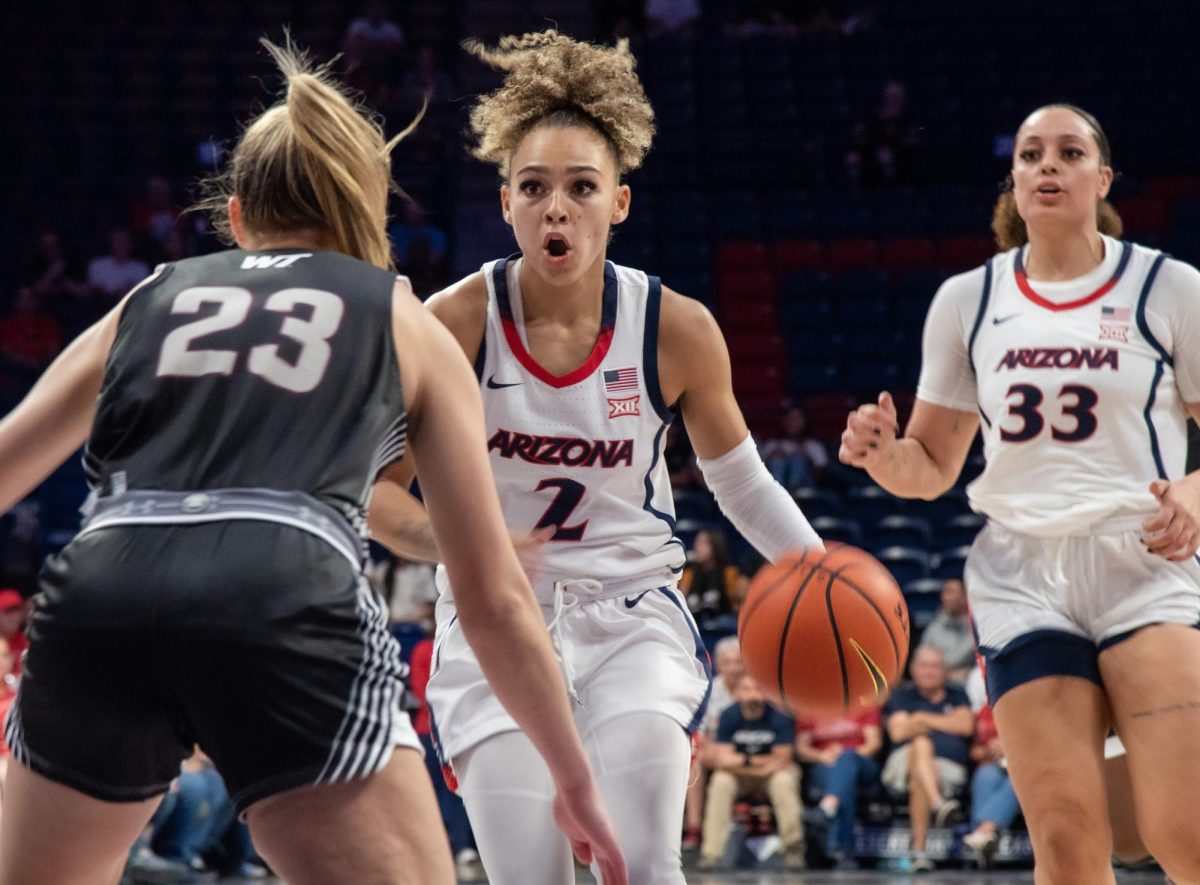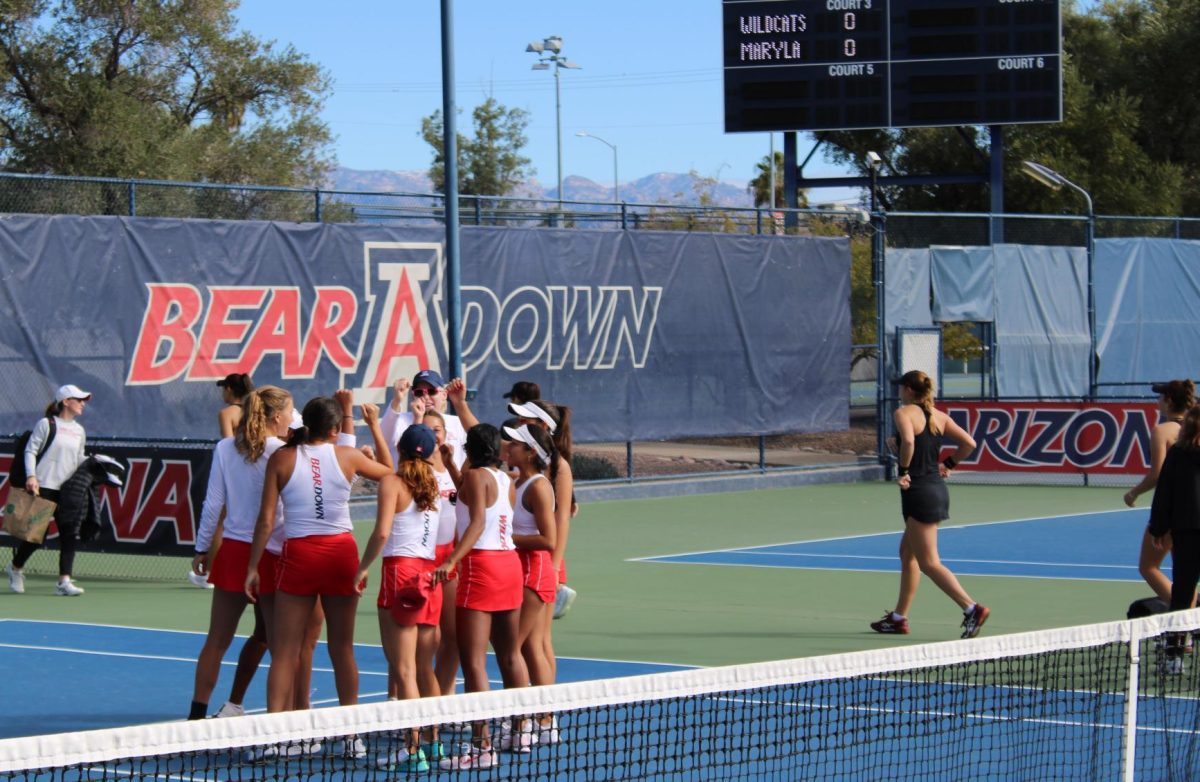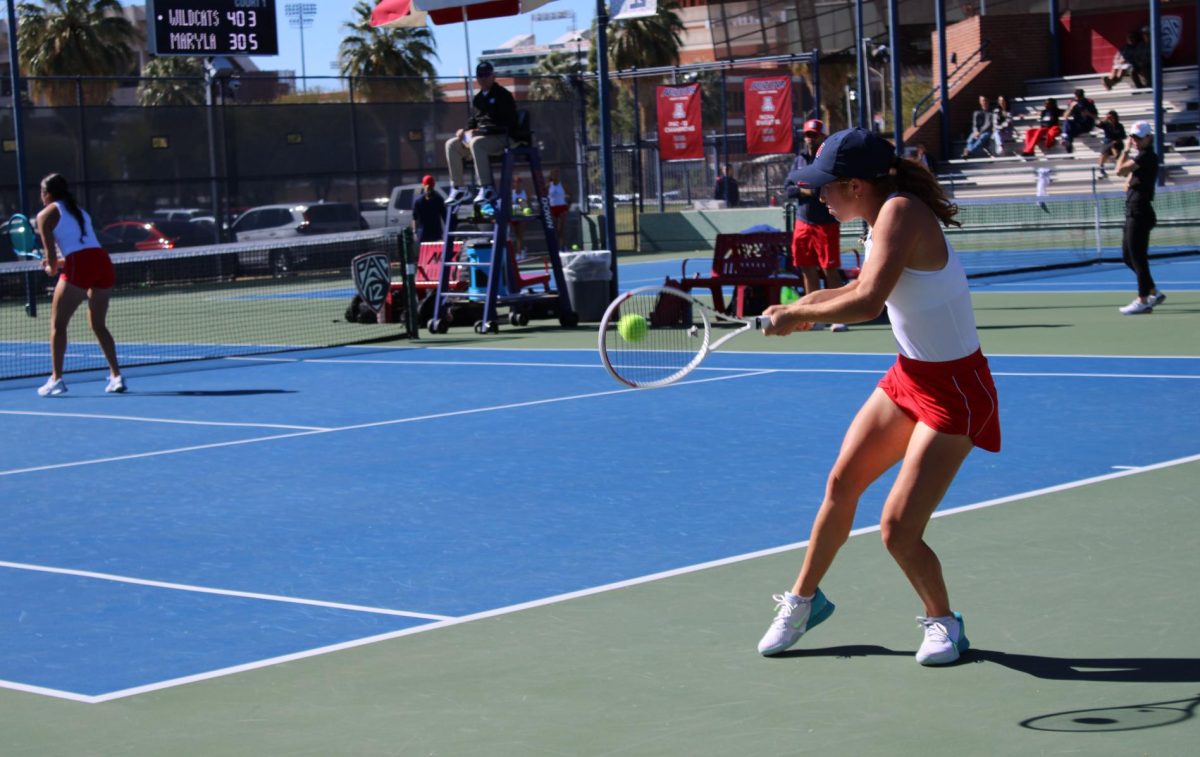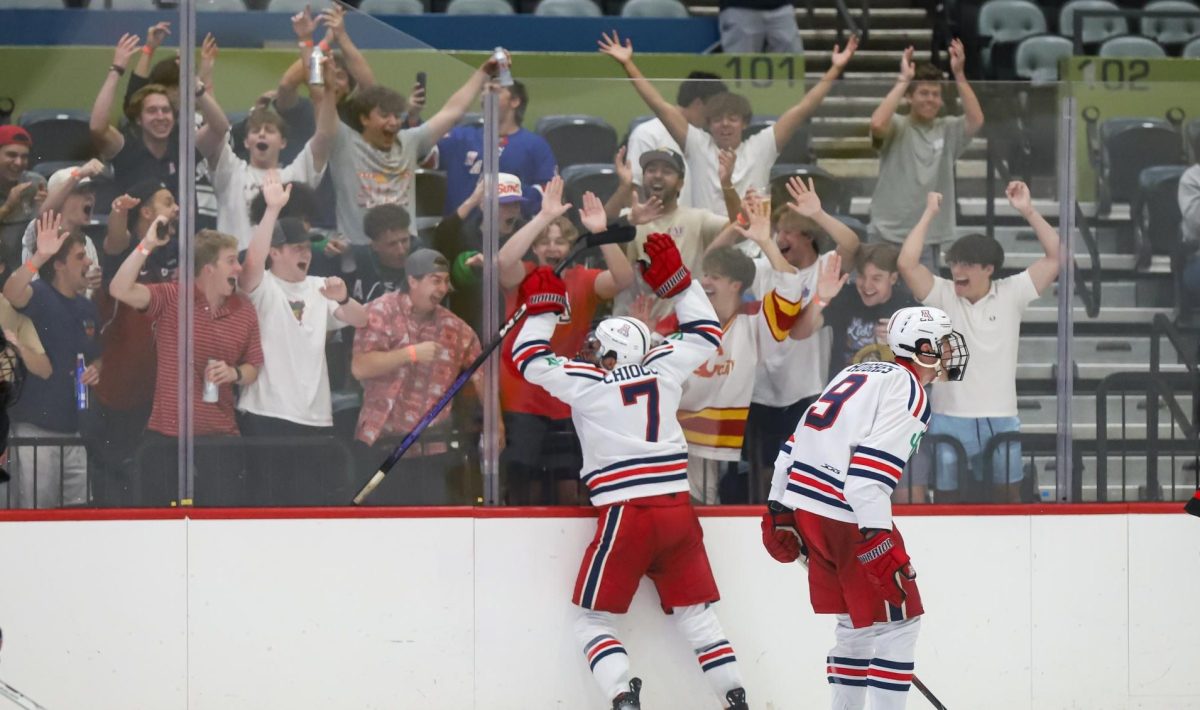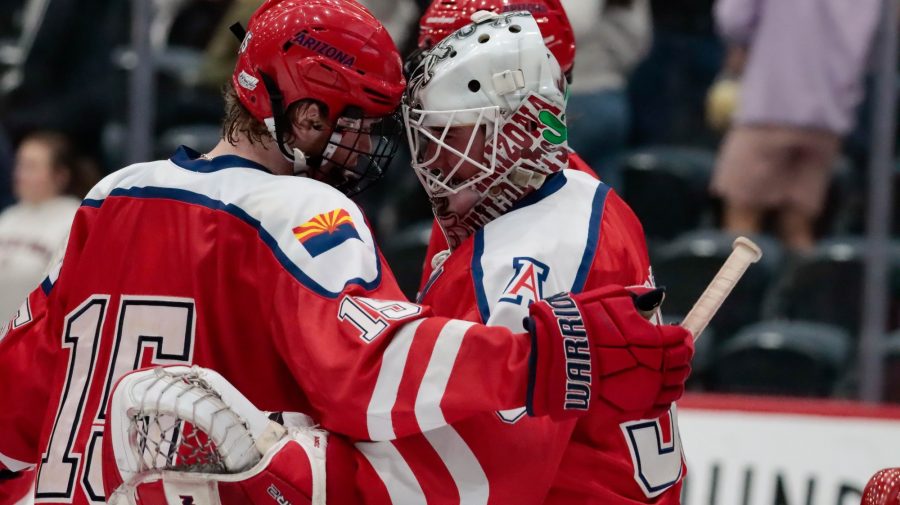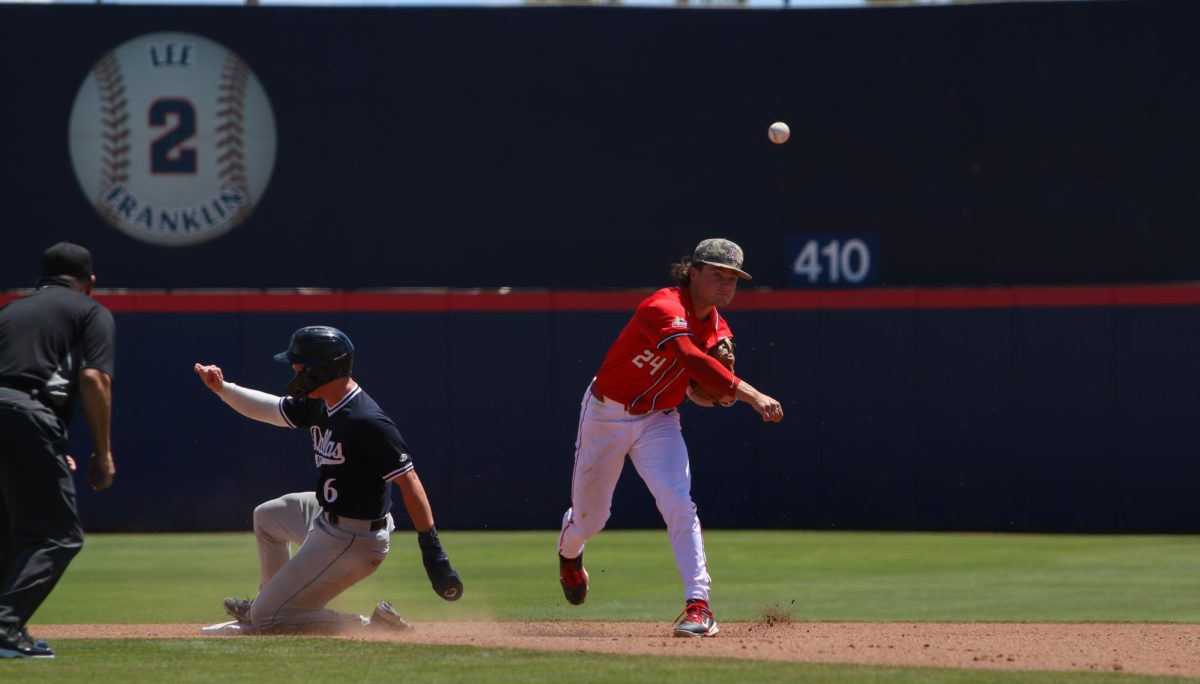Arizona men’s basketball assistant Emanuel “Book” Richardson is one of four NCAA assistant basketball coaches who have been arrested by the FBI in a corruption and bribery scheme according to the U.S. Department of Justice announced.
“We were made aware of the Department of Justice’s investigation this morning and we are cooperating fully with the FBI and the U.S. Attorney’s office,” according to a statement from the University of Arizona. “Assistant coach Emanuel Richardson was immediately suspended and relieved of all duties. We were appalled to learn of the allegations as they do not reflect the standards we hold ourselves to and require from our colleagues. The University of Arizona has a strong culture of compliance and the expectation is we follow the rules.”
Along with Richardson, USC assistant Tony Bland, Auburn assistant Chuck Person and Oklahoma State assistant Lamont Evans are the others charged along with a handful of other managers, AAU coaches and reps from Adidas. Adidas director of global marketing, Jim Gatto, is implicated as the top tier person in charge of providing cash to persuade coaches to push players toward agents affiliated with their brand.
Court documents depict several instances where Richardson met with undercover agents, Christian Dawkins, a business manager and Munish Sood, chief executive of financial advisory company Princeton Capital, in order to secure funds to persuade top prospects into joining Dawkins financial team. Richardson, in total took in roughly $20,000 with 15 of it going to a prospect to secure their commitment. It is not known at this time whether the commit actually received the money.
According to the Arizona Daily Star’s Bruce Pascoe, Richardson faces a maximum of 60 years in prison and/or a fine of $1.5 million.
Another part of the story is Richardsons insistence that he had a particular player in his corner. Richardson mentioned the player, “player-6”, as being sheltered and that he kept to himself and confided in him. He stated that he would be able to push him in one direction or another in order to sign with Dawkins.
“The picture painted by the charges brought today is not a pretty one,” said Joon H. Kim, acting United States Attorney for the Southern District of New York. “Coaches at some of the nation’s top programs soliciting and accepting cash bribes. Managers and financial advisers circling blue-chip prospects like coyotes. And employees of one of the world’s largest sportswear companies secretly funneling cash to the families of high school recruits.”
According to ESPN’s Darren Rovell allegations stem from an “intricate web” of financial advisors, agents, coaches in AAU who conspired to get kids to go to a certain school. One of those targets was allegedly Brian Bowen, a Louisville commit, who is reported to have accepted near $100,000 to attend Louisville. Earlier in the year, after Bowen committed, Louisville men’s basketball head coach Rick Pitino raved about not spending a dime in order to secure Bowen.
Adidas was named as the worldwide sports brand in the document. There is a second Adidas school in addition to Louisville implicated in the allegations, however, they have not been named at this time.
The scope of this investigation is not yet known but many estimations have this as the beginning of a widespread unraveling of corruption within college basketball. Jay Bilas, college basketball analyst, mentioned the ramifications for the individuals involved could be as severe as 20 years in prison, with no known consequence for the schools that employ them.
Pac-12 Commissioner, Larry Scott, weighed in on the findings and subsequent action, if any, by the conference.
“As Commissioner of the Pac-12 Conference, I am deeply troubled by the charges filed in federal court today against a number of individuals involved in college basketball, including assistant coaches employed by member institutions of our Conference,” Scott said. “Protection of student-athletes, and of the integrity of competition, is the Conference’s top priority. I have been in contact with the leadership of both universities and it is clear they also take this matter very seriously. We are still learning the facts of this matter, but these allegations, if true, are profoundly upsetting to me. They strike at the heart of the integrity of our programs, and of the game that so many people love and play the right way.”
Court documents also implicate Richardson provided benefits to a recruit who committed to Arizona in August of 2017. The amount was $15,000 in total and determined to be provided immediately. It has not been stated who the recruit is at this time. The timing would seem to implicate 2018 recruit Jahvon Quinerly who committed to Arizona as one of the top point guards in the nation on August 8, though there has been no confirmation at this time. Court documents also state that a player currently on the roster received some type of benefits as well, though no player has been named specifically.
“The behavior that Richardson is accused of is completely unacceptable and does not reflect the principles of this athletics department,” according to a statement from Arizona Athletics.
The implications for Arizona are serious. In 2013, the NCAA released a statement saying that head coaches are responsible for the activity that goes on within their programs. That being said would seem to implicate that the head coach of Arizona men’s basketball, Sean Miller, is responsible for the conduct of Richardson. The ramifications for the basketball program and athletics as a whole are not known at this time. Self-imposed sanctions upon findings or a wait-and-see approach to feel out possible NCAA sanctions are on the table, although it was implied by the U.S. Attorney that institutions were the victims in this case.
Arizona is a Nike school, meaning they receive payments, equipment and attire to represent the Nike brand, which would seem to help slightly in this case. However, the NCAA has a history of hammering institutions for lack of control in matters such as these. This case is different due to the FBI’s involvement and investigative work for the past three years.
Follow Saul Bookman on Twitter



